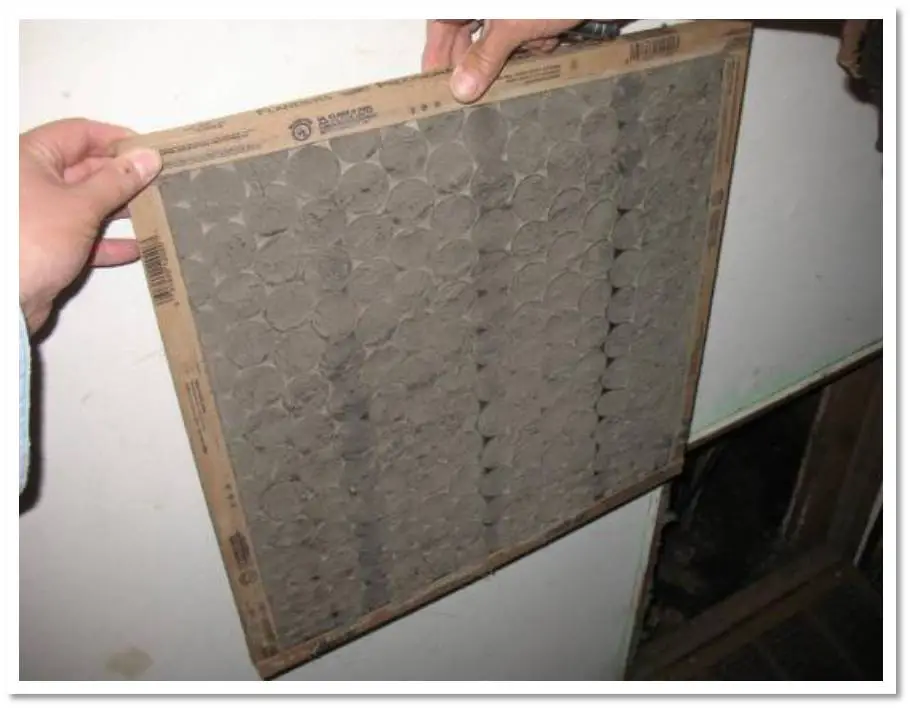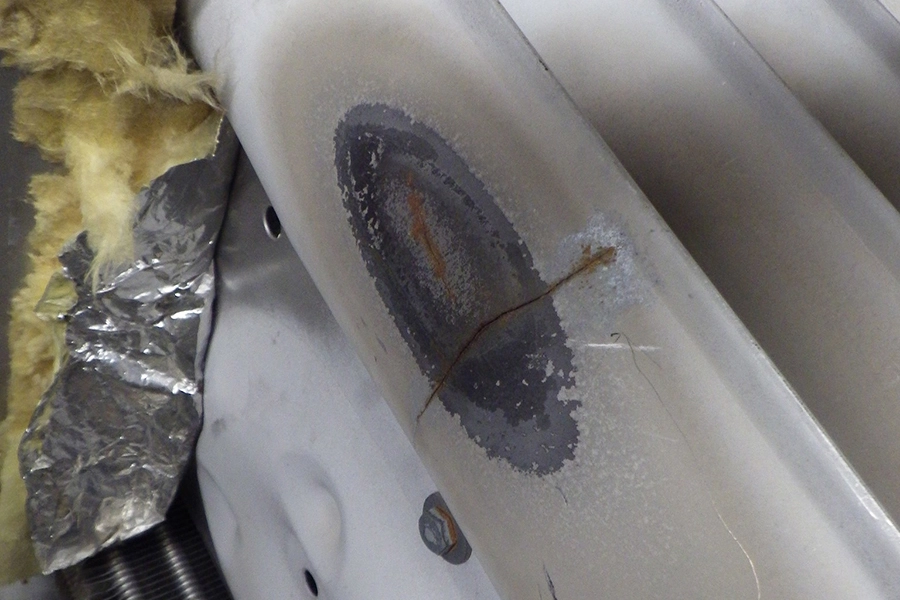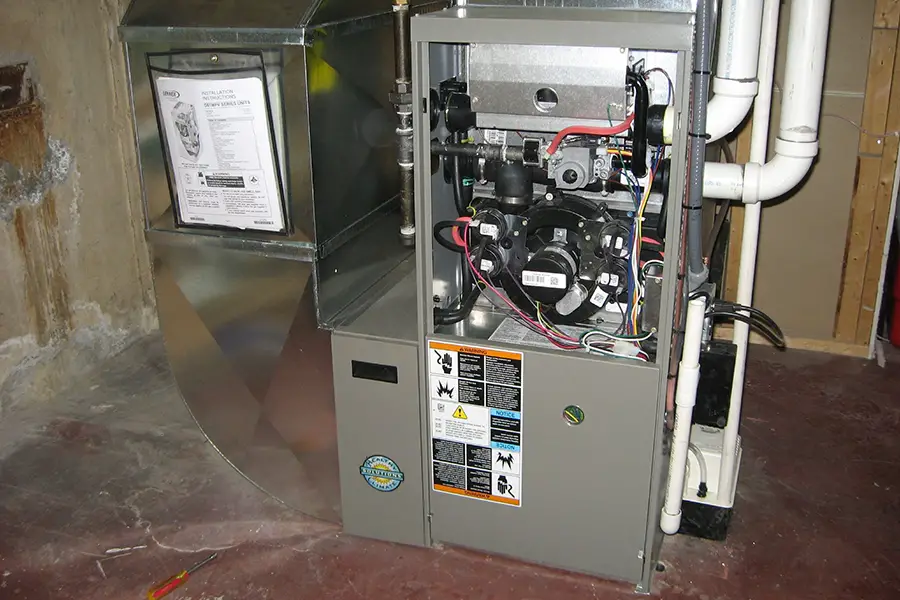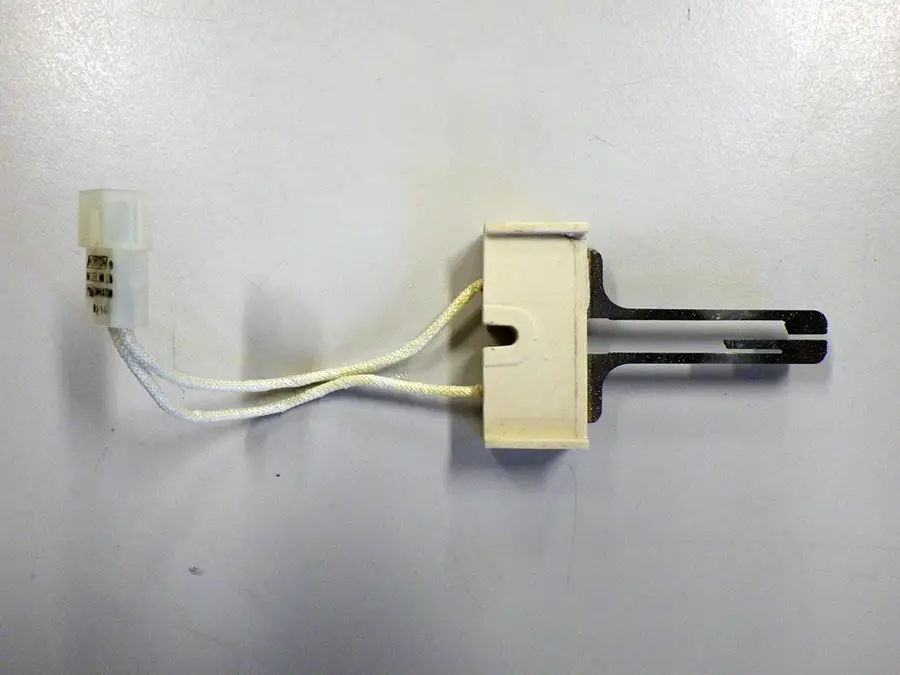Making sure that the air filter in your home HVAC system is replaced regularly is essential to keeping the system running smoothly and will help keep everyone in your home healthy. But what kind do you need? How often do they need to be replaced? This article will break down the several types of HVAC air filters available to help you make the right choice.
Why is replacing your filter important?
A filter in a home HVAC (Heating, Ventilation, and Air Conditioning) system is used to capture and remove airborne particles such as dust, dirt, pollen, and other allergens from the air as it’s heated or cooled and then distributed throughout the house.
This helps improve the indoor air quality and prevents the buildup of debris in the HVAC system which can reduce its efficiency and lifespan. Filters are available in various types and efficiencies, and it’s recommended to replace or clean them regularly to ensure optimal performance of the HVAC system.
Types of filters typical in home mechanical equipment
I’ve listed each type of filter below with some of the pros and cons to using each.
Fiberglass Filter
Also known as “throwaway” or panel filters. These filters are better than nothing, but not by much.
Pros
- They are cheap to purchase and can be bought almost anywhere ($1-2)
- They are disposable, so you don’t have to worry about cleaning them
Cons
- They may clog faster than a better and more expensive filter
- Not highly effective at removing airborne particles and have a minimal filtering ability
- Lasts 30 days

Pleated Filter
Pleated filters have folds or corrugations that provide more surface area to catch particulates than a flat filter. These also cause less strain on your HVAC equipment’s motor because they balance filtering ability and ease of drawing air through the filter. This type of filter will make up the majority of filters you’ll find in any big-box store.
Pros
- Fairly inexpensive ($3-$8)
- Better at removing airborne particles than fiberglass or a flat filter of the same material
- Can last up to 90 days depending on the conditions
Cons
- Have to be changed out sooner than some more expensive brands (but last longer than fiberglass)
- They are prone to dust build-up

High-efficiency pleated filters
High-efficiency pleated filters are similar to pleated filters but may have additional pleats for additional surface area, may be made of better materials, and/or be electrostatically charged (see next filter). These can also be several inches thick to provide additional filter material.
Pros
- Some of the best filters on the market
- MERV rating of at least 13
- Prevent the spread of illness and disease and help people with respiratory issues
- Lasts up to 6 months
Cons
- These can be expensive since they are much better than a filter ($50+)
- They tend to be quite thick since they are catching so many particles, so they may not fit in just any home HVAC system
- Due to the high cost of replacing them, they are not recommended for homes that do not need cleaner air due to health issues

Electrostatic filters
The electrostatic charge allows the filter to pick up more particles and can be applied to pleated or reusable filters.
Pros
- Rather good at catching small airborne particles from the air
- Designed to capture smoke and fumes from the air
Cons
- These are more expensive to replace than other options
- It may be custom sized to your unit, which will be much more costly

Reusable filters
Reusable filters are made of metal or washable fabric and can be washed and reused, lasting 5-10 years.
Pros
- Reusable filters may be more convenient because you do not have to worry about buying a new one
- They may save you money in the long run by not having to buy new filters every time
Cons
- They are more costly upfront ($50+ for metal or $25+ for fabric)
- They may not filter the air as well as other options
- Require manual cleaning with a washing machine, high pressure hose, or other methods
HEPA Filters
These filters are not typically used in residential environments, but you may have heard the term before describing filters for vacuum cleaners or other equipment.
Pros
- HEPA filters are very efficient at filtering tiny particles from the air
- Can remove 99.7% of the contaminant down to 0.3 microns
- Keeps dust, pollen, and other pollutants out of your lungs
Cons
- They cannot filter things like gasses, odors, or fumes
- They can be costly when it is time to replace it
- If you get a HEPA filter that is too dense, it can cause your HVAC system to struggle to get air
What is a MERV rating?
MERV stands for Minimum Efficiency Reporting Values. MERV ratings are based on a 1-20 scale for a filter’s ability to catch airborne particulates between 0.3 microns and 10 microns. The higher the rating, the better filtration you can expect from that filter. For example, MERV 9 and above may be used in a hospital laboratory. A MERV 13 or above may be used in a general surgery theater. A MERV 17 or above will be used in places like pharmaceutical manufacturing companies. Every filter should have a MERV rating, but some of the very cheapest options on the market won’t have one listed.
What MERV rating should I get?
It is essential not to get too high a MERV rating for your standard home HVAC system. Most HVAC systems are designed to handle a MERV 1-8 and maybe up to 12. If you go above this, the filter will be so dense that it will starve your HVAC system for air. The systems that use MERV filters above a 12 will be specifically designed for that purpose. Contact your preferred HVAC specialist or equipment manufacturer if you have any questions about your HVAC system filter capabilities.
| Particle Size Filtered | Controls these contaminants | Applications | Filter Type | |
|---|---|---|---|---|
| MERV 1 | Filters down to 10.0 micron particles | Pollen, dust mites, sanding dust, textile, carpet fibers | Pre-filter in commercial buildings, residential furnaces, window air conditioning units | Fiberglass and aluminum mesh |
| MERV 2 | ||||
| MERV 3 | ||||
| MERV 4 | ||||
| MERV 5 | Filters down to between 3.0-10.0 micron particles | Same as above plus mold/spores, dust lint, cement dust | Pre-filters or final filters, commercial buildings, better residential buildings, industrial workplaces, paint booth inlets | Disposable filters, pleated filters |
| MERV 6 | ||||
| MERV 7 | ||||
| MERV 8 | ||||
| MERV 9 | Filters down to between 1.0-3.0 micron particles | Same as above plus Legionella, lead dust, humidifier dust, coal dust, Nebulizer dust | Pre-filters or final filters, hospital laboratories, better commercial buildings, superior residential buildings | Home box filters |
| MERV 10 | ||||
| MERV 11 | ||||
| MERV 12 | Commercial filters | |||
| MERV 13 | Filters down to 0.3-1.0 micron particles | Same as above plus bacteria, tobacco smoke, auto fumes, sneeze particles, insecticide dust, copier toner, pet dander, face powder | Final filters, general surgery, superior commercial buildings, hospital inpatient care, smoking lounges | |
| MERV 14 | ||||
| MERV 15 | ||||
| MERV 16 | ||||
| MERV 17 | Filters down to less than 0.3 micron particles | Same as above plus virus carriers, carbon dust, sea salt, combustion smoke, radon progeny, odor, microscopic allergens | Final filter, clean rooms, radioactive materials, pharmaceutical manufacturing facilities, carcinogenic materials, orthopedic surgery rooms | HEPA and ULPA filters |
| MERV 18 | ||||
| MERV 19 | ||||
| MERV 20 |
What filter should I buy?
Choosing the right filter is a balance of effectiveness of improving air quality and not causing your HVAC system to work too hard. Usually, a pleated air filter with a MERV rating between 7-8 is a good compromise for most homes.
I also have never had good luck with reusable filters. It has always seemed that once they are washed and reused once or twice, you will never be able to get them completely clean again. I have always liked the idea of the filter collecting the dirt, and then me throwing it away and replacing it with a new and fresh one.
How often should a filter be changed?
I have been asked this countless times, and here is my recommendation: I recommend that you use whichever type of filter you think is best and check it in thirty days. If it is filthy, check your next one in fifteen days instead of thirty. Or if it still looks brand new, give it another fifteen days.
Most filters claim that they can last up to ninety days. This is not necessarily a lie, but it can be pretty misleading. There are a lot of factors that go into how often you should change your filter. If you live next to a busy dirt road, on a farm, with several long-haired dogs, your family cooks a lot, and someone smokes a lot, your filter will get dirty quickly. If you compare that to an older adult, who lives in town, with no dogs, doesn’t smoke, and rarely leaves the house, their filter will probably be pretty clean when they change it. Someone with two dogs and three kids will have to change their quality pleated filter every 15 to 30 days.
Using a cheap fiberglass filter that you can see through may not clog up faster than a high-dollar filter, but how much dirt and dust are getting through and into your ductwork? If you can hold the filter up to a light and can see the light bulb through it, it’s not going to filter out any small contaminants.
Final Thoughts
No matter which choice of filter you make, any filter is better than no filter. Choose which one you are comfortable with price-wise and which one you are satisfied with regarding filtration abilities. This may be different for different people as will how often you will have to change the filters.
What’s your favorite air filter? Let us know in the comments below.






